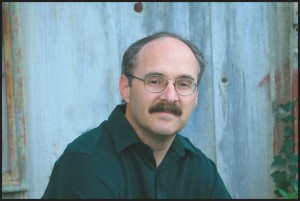Guest Blog: IS IT WORTH IT?
How many of us have toiled in front of our computers for weeks, months, or years on end, honing our work, polishing it to a high sheen, hoping our story grabs the attention of an acquisition editor. After receiving one rejection after another, in the mail comes THAT letter, the one that says The Really Smart Publishing House loved your work, and wants to publish it.
I’ve had the privilege of getting that letter. And when it did happen, I felt like I was on top of the world. A publisher actually wanted to publish my novel. But after the euphoria fades, and the hard work of getting your novel ready for print sets in, a new reality begins to blossom—the inevitable publishing setbacks. This is the part most writers never think about when they envision what it’s like to be a published author.
It’s easy to see in our heads excited readers turning the pages of our tomes, sinking their teeth into the twists and turns of the story, ruminating on the nuances of our characters. What we never expect is that the cover art for your book looks horrendous, and you have little say in the matter, or that the book distributor the publisher is working with has gone out of business, which means your book is put on hold until they sign with a new distributor. In my case, I had to wait fourteen months before my novel was released as a result of that unforeseen disaster. Or the editor hasn’t finished with the story yet, and because he missed the publishing window assigned you, the release date for your book gets pushed back six months. And when the novel is finally released, the publisher does next to nothing to help you promote it. It’s as though they’re saying, “We’ve done our part. Now it’s time to do yours. So go out and sell your book.” This then begs the question—Is is worth it?
The only way I can answer this most important of questions is it depends on what day you ask me. In some cases, it even comes down to what time of day you ask. There are times after a long stint on the computer that I’m all out of words, what I’ve written is no good, and it probably won’t get published anyway. In those times of despair, I want nothing more to do with writing, except to just walk away and not formulate another word in my head. At that moment, my answer is an emphatic, “NO. All this work for little reward is definitely not worth it.”
However, after a much needed night of sleep, I wake up feeling a whole lot different. My mind has been recharged, story ideas are flowing again, and when I re-read the previous day’s work, I usually find it’s much better than I initially thought. Changes are undoubtedly needed here and there, but there is almost always something promising to work with. It’s at this point I start to get excited about the story again, and have a renewed desire to finish it. And not only finish it, but finish it well. Ask me the same question at that moment, and my response is an enthusiastic, “YES, it is definitely worth it.”
Like other authors who go through the same type of emotional roller coaster ride, the weeks and months it takes to finish your work is filled with plentiful No/Yes moments along the way. But you plow through those valleys of despair, and eventually finish your novel. If you’re one of the fortunate few, you find a publishing house that wants to publish your novel. The next stops in your literary journey are spending several months addressing the story elements the publisher wants fixed, figuring out what the cover is going to look like, writing the back of the book blurb, acquiring book endorsements, and developing a marketing strategy. Then that glorious day finally arrives. Your book is officially released.
If you’re lucky, your publisher will help you with the promotion, but most of it rests on your shoulders. It is you that goes to the local book stores in the hopes of setting up a book signing, usually with mixed results. You’re the one that contacts books clubs, libraries, local newspapers, radio stations, online blog sites, book reviewers, all in the hopes of finding those few who are interested in promoting your work. Then there’s creating your book website, getting book reviews, setting up a publishing party, signing up for shows and conventions, again, all on your shoulders. And after months of almost non-stop promoting, you will probably have a few hundred sales to show for your efforts, often times, not even that.
I don’t intend to paint a grim picture, but this is the typical life for first-time authors, and second time, and third time, etc. It’s a lot of hard work, and you often don’t have much to show for your efforts.
Is it worth it? That depends on why you write. If it’s to hit it big and be a New York Times bestselling author, chances are that’s not going to happen. Is it to make enough money so you can quit your day job and spend your waking hours creating one masterpiece after the other, again, that’s not a likely future for you. If, however, you write novels because you’re a story teller at heart, and you want to share them with others so they can be taken along on a wonderful journey, then you have a very good chance of fulfilling that dream. And if that truly is your dream, then I say yes, it’s definitely worth it.
– – –
 Mike Lynch is constantly awed by the wonder of God’s creation, which has led to his interests in theology, astronomy, history, politics, and films, eventually turning his attention to writing. He published his first (non-fiction) book, Dublin, in 2007. His first novel, When The Sky Fell, co-authored with Brandon Barr, was published two years later, followed by two other books they’ve written together, American Midnight and After The Cross (to learn more, visit Ellechor Publishing House). His latest novel, The Crystal Portal, co-authored by Travis Perry, was released in 2011. Mike graduated from San Jose State with a degree in history, and from San Jose Bible College with a degree in Bible and theology. He lives in the San Francisco Bay Area with his wife and two children. Visit Mike at his web site.
Mike Lynch is constantly awed by the wonder of God’s creation, which has led to his interests in theology, astronomy, history, politics, and films, eventually turning his attention to writing. He published his first (non-fiction) book, Dublin, in 2007. His first novel, When The Sky Fell, co-authored with Brandon Barr, was published two years later, followed by two other books they’ve written together, American Midnight and After The Cross (to learn more, visit Ellechor Publishing House). His latest novel, The Crystal Portal, co-authored by Travis Perry, was released in 2011. Mike graduated from San Jose State with a degree in history, and from San Jose Bible College with a degree in Bible and theology. He lives in the San Francisco Bay Area with his wife and two children. Visit Mike at his web site.











































Exactly how I feel 🙂
Yes to all of this. And another thing I remind myself is that there was a time when I truly believed (in a devastating way) that I would never find an agent, never be published, and I went through deep grieving over that — but in the end I was able to say to God, “Lord, if you don’t want me to become a published author, then I’m prepared to accept that because I know You know what’s best for me.” And it was literally a matter of weeks after that point that I did find my agent (who is wonderful) and two months later, I had a publishing contract.
Has my career turned out the way I might have dreamed or hoped or even anticipated? No. There have been disappointments and discouragements along the way. But some things have turned out even better than I thought they would, and ultimately I keep coming back to that same hope — “You know what’s best for me.” Sure, it would be nice to be a bestseller in North America and asked to do flying book tours and speak at major conferences. But I also have a responsibility to my local church and my family (including three young children and two elderly parents who live with us), and I also struggle with finding enough time to write as it is. So frankly I’m relieved and grateful that I don’t have that pressure.
I remember seeing a definition once that really struck me: “Contentment is the understanding that if I am not satisfied with what I have, I will never be satisfied with what I want.” I think that after we Christian authors have done all we reasonably can to write good books, fulfill our obligations to our publisher, and promote our work to readers, our next challenge is to learn to be satisfied — not complacent or lazy, but at peace — with the result. Because it’s all in the Lord’s hands, and He knows what we need.
Wow, R. J., great thoughts on the subject. It really is a help for those of us yet unpublished to hear from you who are. Thank you, and Mike, for these candid, insightful comments. God does know what He is about!
Becky
So true~~thanks, Mike!
I realized years ago, without contracts, that I was writing for the love of the craft, and as a servant using a God-given gift. Writing bestows joy and spiritual blessings on the scribe, published or not. And, as I’m often heard to mumble, “It’s cheaper than therapy!”
I think all artists go through this same schizophrenic, love/hate relationship with their art. I know that in the middle of the rehearsal process for a show and the pressure comes on and things are not going well, or I’m at a theatre until far too late in the night and I have to get up in the morning for my day job, or I go to audition after audition with just a “Thank you, goodbye” for my efforts, I feel a bit like Mike described: why on earth am I, or any sane person, doing this?
Everyone has to make an individual decision on whether it’s “worth it.” I sympathize with RJ’s thoughts, since I can’t imagine the faith it takes to work in the arts with a family to provide for (my cat is about all the responsibility my art can support at the moment).
For me, personally, I try to look at my discouragement in stride. If I had quit theatre after school, I would never have gotten to work in the shows that I now have on my resume. If I had stopped when I was discouraged, I would never have learned what I know now and matured as an artist. If I stop now, who knows what opportunities (including the relationships I have formed with others in the field) I am turning my back on that God might have in store for me? At the end of the day, an artist has to embrace both negative and the positive of the art and love the process as much as the result. Otherwise, why even continue?
I read a quote somewhere that authors have to believe two contridictions at the same time: that whatever they’re working on is the best ever and what they’re working on is the worst ever. That way they have the encourage to keep going, but the need to make it better.
R.J., Kacy, & Michelle,
I thought your comments were thought out and articulated very well. I also appreciate the fact that many of us have gone through the up/down experiences of applying our craft to the best of our abilities, with dubious results at time (always nice to have other people empathize with us). Sometimes it’s a struggle to move forward with our writing projects or performances when it seems like we face nothing but setbacks, while at the same time, have a sense that God is asking us to keep moving forward. Paul talks a lot about that in 2 Corinthians, and his life was a lot tougher than ours.
Mike